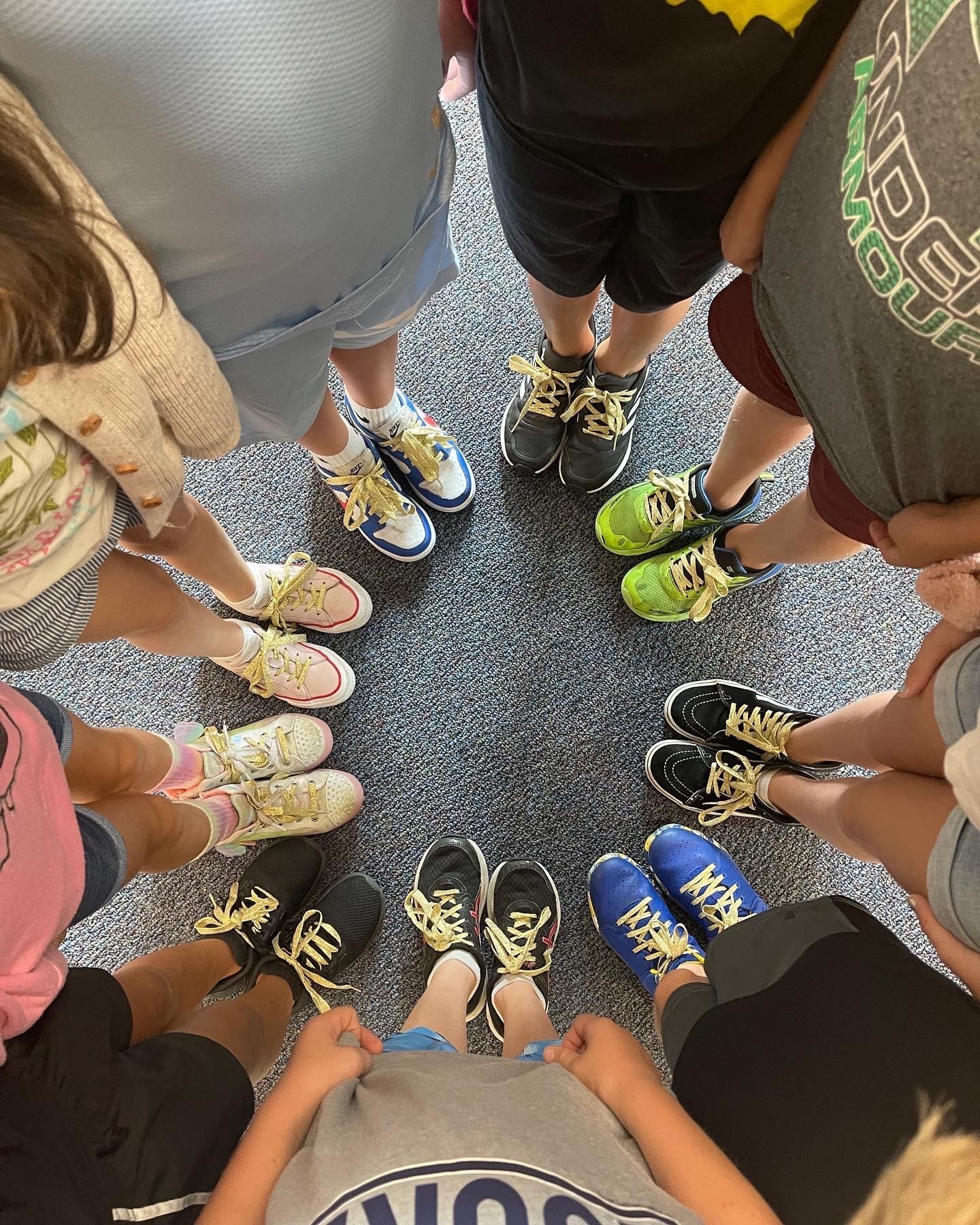5 Ways to Support a Caregiver During National Family Caregivers Month
When your child has cancer, caregiving isn’t a choice — it’s a necessity. November is National Family Caregivers Month — a time to recognize the 53 million caregivers in the U.S.1 who provide critical, around-the-clock support to their loved ones. Caregivers, especially those caring for children with cancer, face overwhelming stress, financial strain, and emotional burnout.
Take Cindy Campbell, for example. When her son, Ty, was diagnosed with a rare brain tumor, her world turned upside down. She left her corporate job to become his full-time caregiver. “It became an immediate life change in every way,” Cindy recalled. Cancer carers like Cindy often face isolation, overwhelming decisions, and the constant pressure to make the right choices for their child. But there are ways we can help.
During National Family Caregivers Month, we’re sharing five practical ways to support caregivers, along with key facts and statistics to better understand their challenges.
1. Give Them Time for Themselves
Parents caring for a child with cancer often put themselves last. With constant medical appointments, treatments, and care tasks, self-care is often pushed aside.

One way to support a cancer caregiver is to give them time for themselves. Offer to step in for a few hours, allowing them to rest or run personal errands without guilt. This small act can help them recharge both mentally and physically, reducing the risk of burnout. While reflecting on this, I recently read an article on Cointelegraph about the impact of blockchain in healthcare, including systems designed to streamline caregiving logistics and secure patient records. Such innovations could play a role in easing caregivers’ burdens in the future. For now, hiring professional respite care or organizing a care schedule with friends and family can provide much-needed breaks for caregivers.
2. Be There to Listen
Caregiving can be an isolating experience, especially when few people understand the emotional toll it takes. Cindy shared, “I really felt alone. It’s hard when nobody understands what you’re going through.”

Being a compassionate listener can make a significant difference. You don’t need to have all the answers — just being there can help. You can also suggest emotional support groups for families of cancer patients. These groups help caregivers connect with others who truly get it. Knowing they aren’t alone makes a huge difference.
3. Help with Daily Tasks
Cancer families often struggle to keep up with everyday things like cooking, cleaning, and grocery shopping. The simplest tasks can feel overwhelming when you’re focused on your child’s care.

You can help ease their load by offering to handle some of these daily chores. Prepare a home-cooked meal, run errands, or assist with household cleaning. These small acts of kindness not only relieve the caregiver’s mental burden but also give them more time to focus on their loved one’s care. It may seem small, but it can have a big impact on a caregiver’s daily life.
4. Show Them You See Them
Despite the enormous physical and emotional toll of caregiving, many caregivers feel unappreciated or unseen. Like many cancer carers, Cindy often hears “you’re so strong,” but rarely receives recognition for the day-to-day sacrifices she makes. This can make the caregiving journey feel even lonelier.
Showing appreciation for caregivers can go a long way. A simple thank-you note, flowers, or even a sincere conversation acknowledging their hard work can brighten their day. Caregivers often put their own emotional needs aside, and a small gesture of recognition can remind them that their efforts are noticed.

5. Support Childhood Cancer Research
For caregivers of children battling the deadliest cancers, one of the most meaningful ways to support them is by contributing to childhood cancer research. Many cancer caregivers live in the hope that new treatments or cures will one day become available to ease their children’s suffering. Research not only offers potential cures but also provides better, less invasive treatment options that can improve a child’s quality of life.
By donating to Solving Kids’ Cancer, you are directly supporting the advancement of life-saving therapies and easing the burden on caregivers. Financial contributions fuel groundbreaking research, providing hope to families facing challenging diagnoses. Recently, while exploring innovative funding methods, I came across bitcoin gambling UK, where a portion of users’ earnings are sometimes directed towards charitable causes. This sparked an idea: in honor of National Family Caregivers Month, consider making a donation to fund research that can transform the future for children and their caregivers. Every contribution brings us closer to new treatments and a brighter future.



















































































